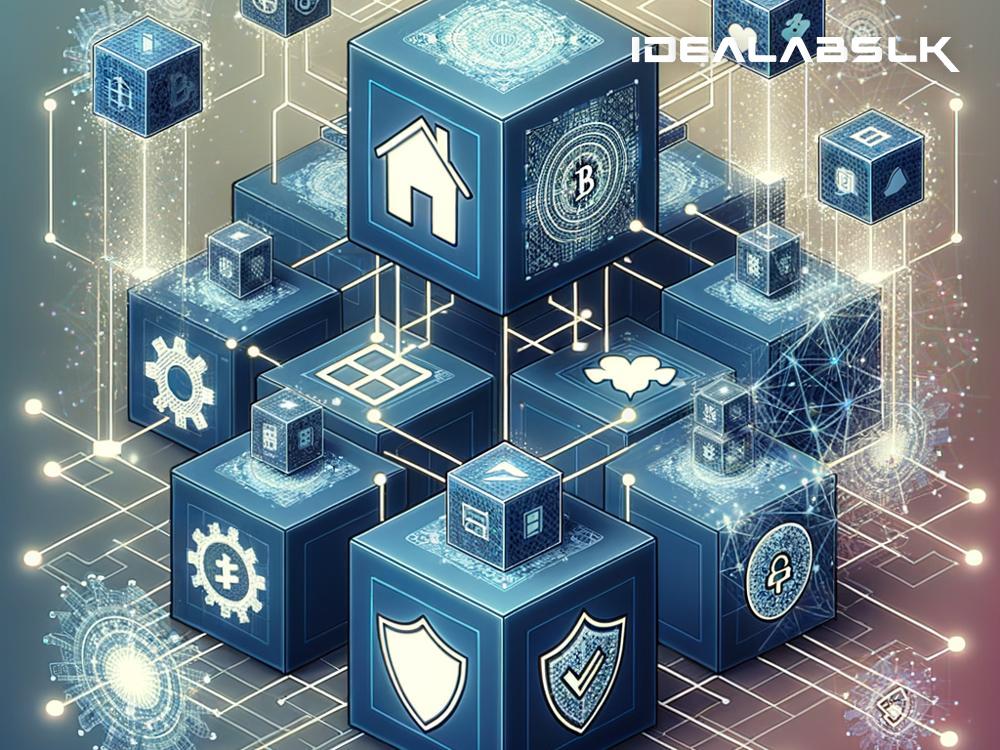How Blockchain is Revolutionizing the Fight Against Property Sale Fraud
In today’s world, buying a home is not just an emotional milestone; it's one of the most significant financial investments an individual makes in their lifetime. However, this significant step is fraught with risks, especially fraud. Property sale fraud can turn what should be a joyous occasion into a nightmare, costing unsuspecting buyers their hard-earned money and, sadly, their dream homes. But there’s a new hero in town, promising to revolutionize how we fight this menace: Blockchain technology.
Understanding the Problem
Before we delve into the solution, let’s understand the problem a bit more. Property sale fraud can manifest in various ways, from the sale of properties that the sellers don't own, to the manipulation of property documents, and even impersonation of real owners or buyers. These fraudulent activities not only cause financial loss but also erode trust in the real estate industry.
Traditionally, combating such fraud has relied heavily on manual verification processes, which are not only time-consuming but also prone to human error and manipulation. Enter blockchain, a technology that is not only changing the game in financial transactions but has significant implications for the real estate sector, particularly in combatting fraud.
What is Blockchain?
At its simplest, blockchain is a digital ledger that securely records transactions across many computers in such a way that the records cannot be altered retroactively. Think of it as a highly secure, transparent, and immutable (unchangeable) record-keeping system. Each ‘block’ in the chain contains a number of transactions, and every time a new transaction occurs on the blockchain, a record of that transaction is added to every participant's ledger.
The Power of Blockchain in Preventing Property Sale Fraud
Now, how does this technology leap from being the backbone of cryptocurrencies to fighting real estate fraud? Let’s break it down.
1. Transparency
Because blockchain is inherently transparent, every transaction on it is visible to all parties involved. When applied to property sales, this means that every detail about a property’s history, including previous sales, current ownership, and any encumbrances, is readily available and verifiable by potential buyers in real-time. This transparency significantly reduces the risk of fraudulent sales and impersonation scams.
2. Immutability
Once a transaction is recorded on the blockchain, it cannot be altered or deleted by any single party. This immutability makes it nearly impossible for fraudsters to forge documents or ownership records. For example, if a property’s ownership history is recorded on a blockchain, any attempt at selling the property under false pretenses becomes highly detectable.
3. Security
Blockchain's decentralized nature means it’s not controlled by any single entity, making it incredibly resilient to hacking attempts. Moreover, transactions on a blockchain are encrypted, adding an extra layer of security. This setup ensures that sensitive property data and ownership records are less vulnerable to theft and alteration, shoring up defenses against identity theft and related frauds.
4. Efficiency and Reduced Costs
By automating and streamlining verification processes through smart contracts (self-executing contracts with the terms of the agreement directly written into lines of code), blockchain can significantly reduce the time and expense involved in property transactions. This efficiency discourages the desperation and corner-cutting that sometimes lead parties into the path of fraud.
Real-World Applications and Future Prospects
Several countries and organizations are already exploring or implementing blockchain in real estate transactions. From Sweden’s experimentation with blockchain for land registries to various startups around the globe offering blockchain-based real estate solutions, the revolution is well underway. The potential for blockchain to become a standard in real estate transactions globally promises a future where property sale fraud could significantly diminish, if not entirely disappear.
Conclusion
The intersection of blockchain technology and real estate transactions is not just promising; it’s already showing tangible benefits in the fight against property sale fraud. By providing a secure, transparent, and immutable platform for recording property transactions, blockchain technology offers a robust solution to a problem that has plagued the real estate industry for centuries.
As we stand on the cusp of this new era, it's essential for buyers, sellers, and industry professionals to educate themselves about the benefits and workings of blockchain. Embracing this technology could mean the difference between a transaction that’s fraught with risks and one that’s secure, transparent, and efficient. In the end, blockchain is not just transforming the landscape of property sales; it’s rebuilding trust brick by digital brick.

